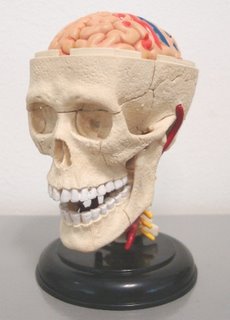
Here's a superb primer by
globalbeehive to the work of
Jean Baudrillard - French sociologist and philosopher best known for his book
Simulacra and Simulation, which was misinterpretated by the popular movie,
The Matrix.
To a science-trained person, postmodernist philosophy can be very annoying due to the abundance use of metaphors and abuse of scientific jargon.
Moreover, I strongly disagree with the view that the world is fundamentally unknowable - even if "objectivity" can never be reached in practice, we can still distill a high level of intersubjectivity, which for many purposes is good enough knowledge to generate testable predictions and create technologies.
Even so, I think that Baudrillard's observations about the modern consumerist culture are spot on, especially his view on the "sign value" of objects.
Globalbeehive puts it this way:
"For Baudrillard, the sign value is much more important. So you don't just buy a computer to use it, but you also buy a computer in order to prove to the others, in a capitalist system, to make them believe that you are participating in it and have a certain status in it."
Oh my, that is really eerie!
Have you ever wondered why people put up those "Made on a Mac" badges?
Wondered why people spend a quarter million dollars on sports cars, only to drive them through city streets with a 50 km/h speed limit?
Why people spend tens of thousands on high-end audio systems that sound practically the same as those costing ten times less?
The yucky aesthetics of the Bohemian fashion trend in early '09? Bubble skirts? Croc shoes?
Well... now you know!
The consumer doesn't just consume the brand, she also gets subsumed by the brand, and the identity of the person becomes inextricable from the products that she brandishes as signs of her status.
Baudrillard's view on "
hyperreality" is also very interesting.
From my perspective, hyperreality is a systems-level, socio-emergent trait that can become more compelling than factual reality.
Hyperreality can be created by distorting or exaggerating certain aspects of factual reality such that it becomes more "real" to the people than reality. This can be reinforced by constantly repeating the message ad nauseum (eg. through media bombardment) and eventually through the mechanism of "normalization of deviance" the people accept the hyperreality as the authentic version.
Or as Baudrillard would say:
"The simulacrum is never that which conceals the truth - it is the truth which conceals that there is none. The simulacrum is true."
This concept is not only of great importance to systems theorists, it is also important to those who are involved in creating the perception of value, for example politicians and sales/marketing people.
**********
I know this is quite a heavy topic to start the New Year with, but heh heh heh... get used to it.
It's going to get even heavier.
Would you like to know more?
About Jean Baudrillard's ideas:
-
Excerpt from Simulacra and Simulation (Stanford) *Warning: postmodernist language!
About hyperreality in society:
-
War between Business and Science
 My blog stats is showing a significant spike of visitors looking for information about the solar eclipse tomorrow, so here are some details about the event organized by the Science Centre (click the heading to go to their site):
My blog stats is showing a significant spike of visitors looking for information about the solar eclipse tomorrow, so here are some details about the event organized by the Science Centre (click the heading to go to their site): Here's a superb primer by
Here's a superb primer by 
